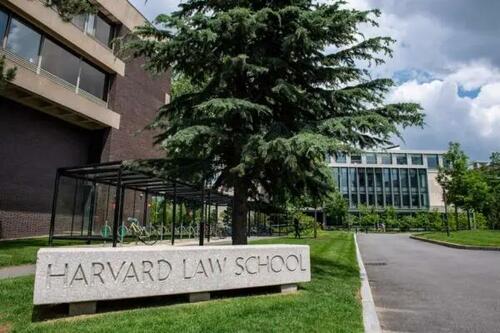New York Post Says Harvard Made Legal Threats Over Its Plagiarism Probe Into Claudine Gay
Authored by Stephen Katte via The Epoch Times (emphasis ours),
Daily tabloid newspaper The New York Post has accused Harvard of using an “expensive law firm” to threaten them over an investigative journalism report into the university president’s alleged plagiarism.
According to the New York Post’s report, on Oct. 24, they made Harvard University aware of more than two dozen instances in which University President Claudine Gay’s words, phrases, or sentences appeared to closely resemble works already published by other academics.
After seeking comment, the Post claims they were first ignored, then sent a lengthy letter by a Virginia-based attorney with law firm Clare-Locke, who identified himself as defamation counsel for Harvard University and Ms. Gay. The entire contents of the letter have yet to be revealed publicly.
Ms. Gay has been accused of plagiarizing multiple sections of her Ph.D. thesis back in 1997, violating Harvard’s policies on academic integrity. According to the Post, two other works by the Harvard president have suspected instances of plagiarism.
The alleged plagiarism, combined with Ms. Gay’s controversial statements during the recent congressional hearing on antisemitism, has led to calls for Ms. Gay to resign. However, the university’s highest governing body announced on Dec. 12 that they fully support her “continued leadership of Harvard University.”
“Our extensive deliberations affirm our confidence that President Gay is the right leader to help our community heal and to address the very serious societal issues we are facing,” the board said in its public statement.
Internal Plagiarism Investigation Backs Gay
A university investigation has since backed Ms. Gay’s actions. According to the Harvard board, in late October, the university became aware of plagiarism allegations in three articles Ms. Gay had written. They claim, at her behest, “Fellows promptly initiated an independent review by distinguished political scientists and conducted a review of her published work.”
In a university context, a fellow can be a member of a highly ranked group of teachers or a governing body member. When the investigation results were revealed on Dec. 9, the fellows reportedly found instances of “inadequate citation” in Ms. Gays reviewed papers.
“While the analysis found no violation of Harvard’s standards for research misconduct, President Gay is proactively requesting four corrections in two articles to insert citations and quotation marks that were omitted from the original publications,” the board said.
“In this tumultuous and difficult time, we unanimously stand in support of President Gay. At Harvard, we champion open discourse and academic freedom, and we are united in our strong belief that calls for violence against our students and disruptions of the classroom experience will not be tolerated.”
These findings directly contradict Christopher F. Rufo, a senior fellow at the Manhattan Institute think tank, who alleges that Ms. Gay lifted an entire paragraph nearly verbatim from a 1990 paper by authors Lawrence Bobo and Franklin Gilliam. In his opinion, this directly violates Harvard’s plagiarism policy.
Harvard’s policy states, “When you paraphrase, your task is to distill the source’s ideas in your own words. It’s not enough to change a few words here and there and leave the rest; instead, you must completely restate the ideas in the passage in your own words. If your own language is too close to the original, then you are plagiarizing, even if you do provide a citation.”
The Epoch Times has contacted Harvard University, The New York Post, and the attorney with law firm Clare-Locke for further comment.
Tyler Durden
Fri, 12/15/2023 – 15:25
via ZeroHedge News https://ift.tt/hpg7Zv8 Tyler Durden

